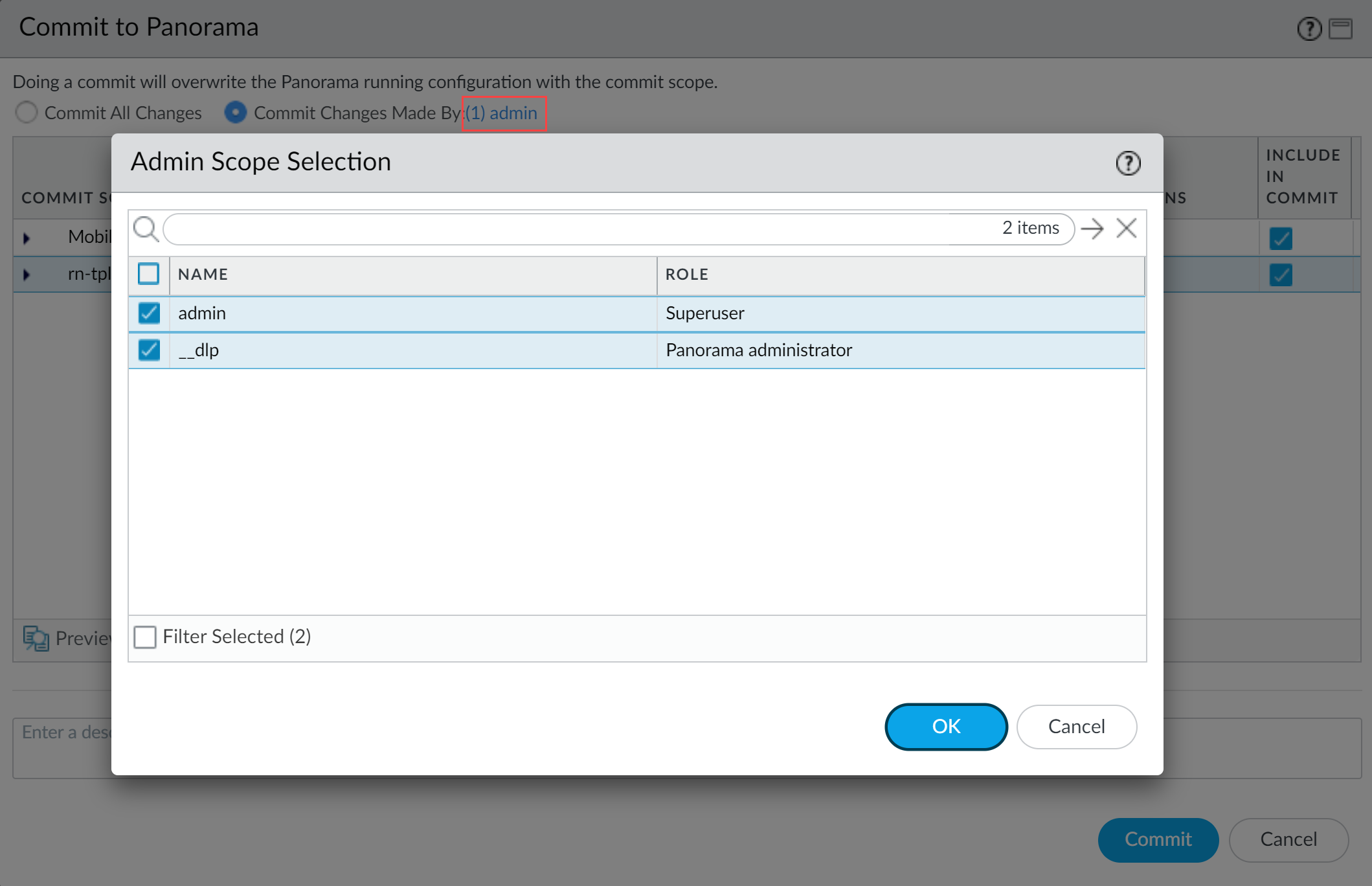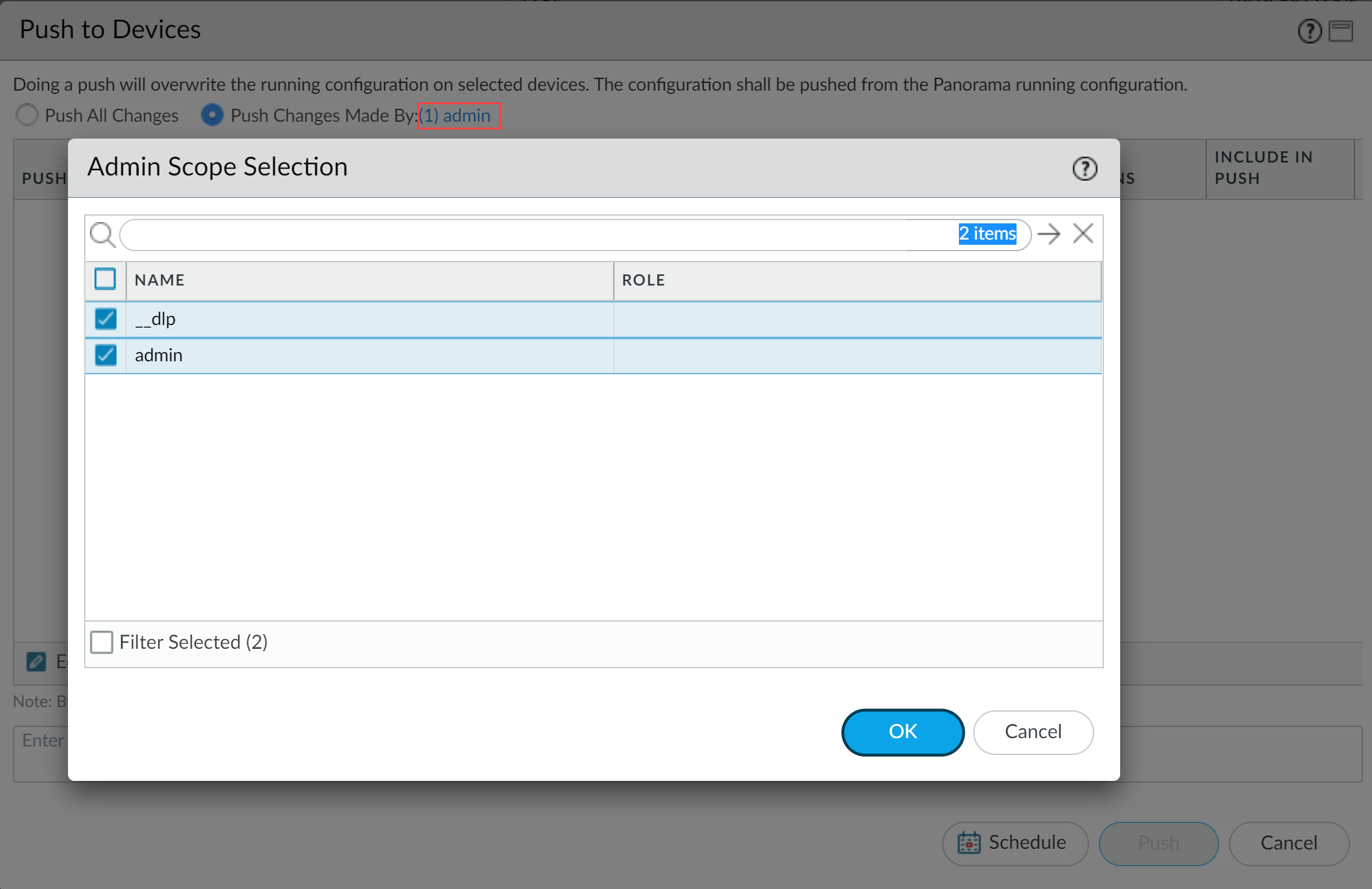Enterprise DLP
Update a Data Filtering Profile on Panorama
Table of Contents
Expand All
|
Collapse All
Enterprise DLP Docs
Update a Data Filtering Profile on Panorama
Modify an existing Enterprise Data Loss Prevention (E-DLP) data filtering profile on the Panorama® management server.
- Log in to the Panorama web interface.Select ObjectsDLPData Filtering Profiles and specify the Device Group.Select a data filtering profile to edit.Modify the data filtering profile as needed.
- See Create a Data Profile for details on configuring configure a File or Non-File data filtering profile that uses only predefined or custom data patternsFor a data profile created on Strata Cloud Manager that includes advanced detection methods, Enterprise DLP only supports editing the data filtering profile settings on Panorama.
- Select the data filtering profile Action (Alert or Block)If the data profile has both Primary and Secondary Patterns, changing the data filtering profile Action on Panorama deletes all Secondary Pattern match criteria.
- Specify a File Type.Leave the file type as any to match any of the supported file types.
- Set the Log Severity recorded for files that match this data filtering profile.
- See Create a Granular Data Profile on Panorama for details configuring a single data profile that contains multiple data profiles to enable your data security administrators to apply differentiated inline content inspection requirements and response actions within the same Security policy rule.
Commit and push the new configuration to your NGFW.The Commit and Push command isn’t recommended for Enterprise DLP configuration changes. Using the Commit and Push command requires the additional and unnecessary overheard of manually selecting the impacted templates and managed firewalls in the Push Scope Selection.- Full configuration push from Panorama
- Select CommitCommit to Panorama and Commit.
- Select CommitPush to Devices and Edit Selections.
- Select Device Groups and Include Device and Network Templates.
- Click OK.
- Push your configuration changes to your managed firewalls that are using Enterprise DLP.
- Partial configuration push from PanoramaYou must always include the temporary __dlp administrator when performing a partial configuration push. This is required to keep Panorama and the DLP cloud service in sync.For example, you have an admin Panorama admin user who is allowed to commit and push configuration changes. The admin user made changes to the Enterprise DLP configuration and only wants to commit and push these changes to managed firewalls. In this case, the admin user is required to also select the __dlp user in the partial commit and push operations.
- Select CommitCommit to Panorama.
- Select Commit Changes Made By and then click the current Panorama admin user to select additional admins to include in the partial commit.In this example, the admin user is currently logged in and performing the commit operation. The admin user must click admin and then select the __dlp user. If there are additional configuration changes made by other Panorama admins they can be selected here as well.Click OK to continue.
![]()
- Commit.
- Select CommitPush to Devices.
- Select Push Changes Made By and then click the current Panorama admin user to select additional admins to include in the partial push.In this example, the admin user is currently logged in and performing the push operation. The admin user must click admin and then select the __dlp user. If there are additional configuration changes made by other Panorama admins they can be selected here as well.Click OK to continue.
![]()
- Select Device Groups and Include Device and Network Templates.
- Click OK.
- Push your configuration changes to your managed firewalls that are using Enterprise DLP.


